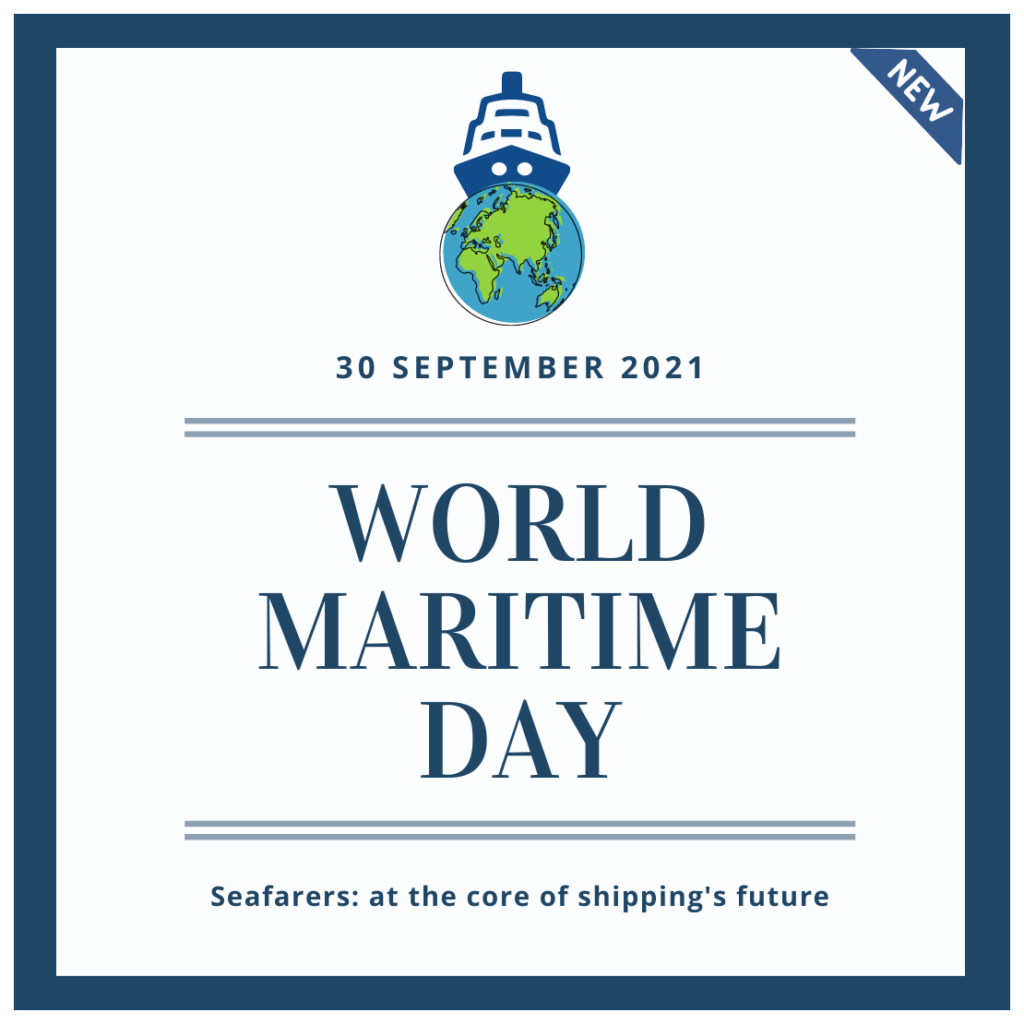World Maritime Day is an annual celebration founded by the United Nations (UN) in collaboration with the International Maritime Organisation (IMO) to acknowledge the contribution of the maritime industry to the development of the world’s economy. World Maritime Day is celebrated every year on the last Thursday of September and this year it will be observed on September 30th.
With the aim of celebrating the invaluable role seafarers play for the global supply chain and to raise awareness on seafarers’ fundamental role in maritime safety and security, the theme chosen by the IMO for 2021 is “Seafarers: at the core of shipping’s future”.
The IMO Secretary General, Mr Kitack Lim, has invited all IMO Member States, intergovernmental organizations and non-governmental organizations in consultative status to join the annual initiative of lighting up countries’ most iconic landmarks – including buildings, bridges, maritime ports, ships, monuments and museums – on World Maritime Day. As Mr Kitack Lim stated: “the initiative is a symbolic effort to unite the maritime community and to raise awareness of the vital contribution of shipping to the world”.
The importance of shipping for modern economies and world trade
Shipping lies at the heart of modern economies: maritime transport moves a substantial volume of the materials that are traded internationally – about 70 to 90 percent – and it is the most efficient and cost-effective method of international transportation for most goods.
People all over the world rely on ships to transport commodities, fuel, goods and products on which they depend, and when maritime transportation problems occur, delays on world economy will be paramount – as it was recently demonstrated by the accident which involved the Ever Given, the Japanese vessel that for six days blocked one of the world’s most crucial waterways, the Suez Canal, causing massive delays in products’ deliveries worldwide.
MOAS’ shipments to Yemen and Somalia
As an international humanitarian organisation dedicated to providing aid and emergency relief to the most vulnerable communities around the world, MOAS’ mission is to deliver assistance where the need is greatest. MOAS has been working hard to provide vital medical supplies, food and other basic goods critical for crisis response and post-crisis recovery to vulnerable communities around the world and shipping was the safest and fastest way to do so.
Since 2019 MOAS has been operating in Yemen and Somalia: we ship therapeutic food and medical supplies to our local partners with the aim of treating childhood malnutrition and communicable diseases. Thanks to different partnerships, in 2020 we managed to ship 4 40-foot containers of product, totalling over 100 tonnes of Plumpy’Doz, Plumpy’Sup and Plumpy’Nut to Yemen and one 24 ton shipment of Plumpy’Sup to Somalia. These Ready-To-Use Therapeutic Food (RUTF) products are specifically prepared for the treatment of severe acute malnutrition in children 6 months of age and older.
In 2021 we have already shipped 75 tons of nutritional aid and supportive pharmaceuticals that will be delivered in the upcoming months to both countries. With our medical and nutritional shipments, we deliver aid to vulnerable people and communities living in countries torn apart by civil war, famine, and devastation. We want to make a strong and life-saving contribution in all these areas, and hearing the stories of children who recovered from malnutrition thanks to our shipments of therapeutic food gives us the motivation to continue with our work.
Main challenges faced by seafarers
On World Maritime Day it is also important to recognize the work of seafarers who often rescue people in distress complying with the international law principle of rendering assistance at sea. Along with the numerous NGO vessels actively operating in the Mediterranean Sea, there have been numerous occasions in which merchant vessels – private or commercial ones – rescued people in distress from unseaworthy boats.
While performing their duty to protect human lives at sea and ensuring maritime safety and security, seafarers often have to face European and national policies which hinder and condemn their actions, and that refuse the permission to disembark migrants at safe ports.
Moreover, in the last few years seafarers had to face another major challenge: the outbreak of the covid-19 pandemic brought many industries to a standstill and disrupted the flow of operations in the industrial sectors. In this scenario, seafarers had to work in difficult, uncertain and extremely challenging conditions to keep working to satisfy world demand.
Final thoughts
Shipping allows countries to access several goods and products coming from all over the world, it helps countries to develop their economies and it allows charities and non-governmental organisations to deliver humanitarian aid to countries where help is needed the most.
MOAS’ numerous humanitarian shipments to Yemen and Somalia are contributing to saving children from malnutrition, that is why we will continue with our work in these areas.
If you are interested in the work of MOAS and our partners, please follow us on social media, sign up to our newsletter and share our content. You can also reach out to us any time via [email protected]. If you want to support our operations, please give what you can at www.moas.eu/donate.


